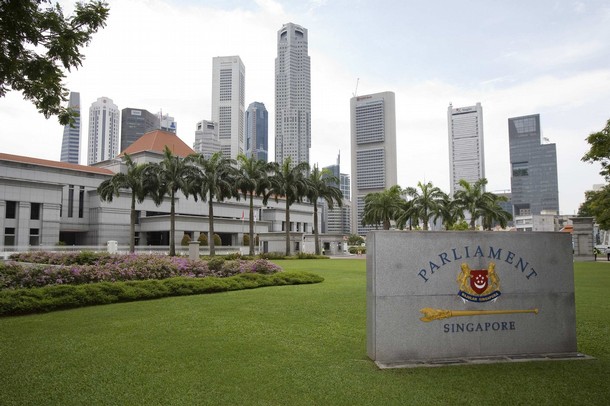Singapore Debates the PAP's Future

Still others are Dr Vincent Wijeysingha, who is believed to have authored the Singapore Democratic Party‘s manifesto, and Chen Shao Mao of the Workers' Party. Sylvia Lim, the chairwoman of the Workers' Party, is another strong candidate.
Also, as with Malaysia in 2008 national elections, social media appear to be playing a growing role in one of Asia's best-wired—and most censored—countries. So far, authorities have largely allowed opposition parties to publish what they want on Internet, much of it irrelevant or irresponsible, while keeping a close rein on print and television media. However Temasek Review, one of the few opposition websites, complained on April 25 that it had been hit with a so-called DDOS, or distributed denial of service attack that flooded the website with vast numbers of responses and put its server out of business.
Singapore boasts some 3 million Facebook members and an estimated 900,000 twitter users. Both the PAP and the opposition have been using the Internet extensively to put their message across for months despite the fact that ostensibly no campaigning is allowed until this week.
To blunt opposition criticism that the PAP is growing increasingly sclerotic and out of touch, the party has fielded 24 new candidates, the youngest of whom is 27-year-old Tin Pei Ling, who came under immediate fire for wearing designer togs. She defended herself by saying she had been forced to leave university for six months to help run the family coffee shop when her father fell ill, and that she knows what it is to worry about keeping families together.
The intimidation that typically characterized elections in years gone by has abated, for instance when then-Prime Minister Goh in the 19096-1997 general election warned that public housing upgrade programs could be withdrawn from constituencies that voted against the government, earning Goh a rebuke from the US State Department.
It is too soon to predict if the tide is turning against the ruling party. The PAP continues to remain entrenched. Throughout the country its imprimatur is overwhelming, whether in civil institutions, the armed forces, public housing and public schools. However, it is a party without the institutionalized platforms for accountability on why policies that have displeased the electorate continue to remain in place.
"This election may portend a generational change" declared Eugene Tan, a political commentator and academic to the nation's main news organization, Channel News Asia.
At the heart of the contest are competing economic blueprints. Another, is who best represents the aspirations and dreams of a population born in the digital age, raised with domestic maids doubling as surrogate mothers and oblivious to the odd ‘pious platitudes' the PAP has always been in the fond habit of dishing out.
« previous 1 | 2 |
- Rangoon on List for Big Weather Disasters
- More Than 100 Orangutans Lost in Indonesian Fires
- North Korea Rocket Could Cause Casualties: US
- Police Bust Asian Human Trafficking Ring
- Vietnam Revokes Visas of Church Officials
- Tibetan Sets Himself on Fire at Anti-China Protest
- Monkey Importer Faces Cruelty Charges Over Thai Shipment
- Authorities Postpone By-elections in Restive North
- Indian Rebels Release One of Two Italian Hostages
- India Lost $210 Billion on Coalfield Sales: Audit
